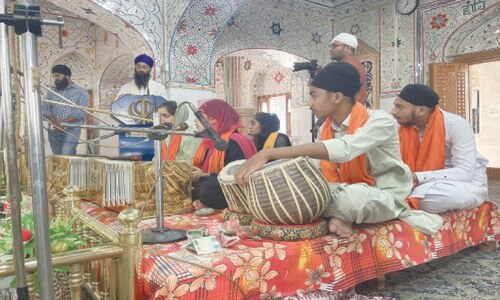ISLAMABAD: The Chairman of the Defence Committee, Mushahid Hussein Syed, asked the leadership of Pakistan and Afghanistan on Tuesday to take advantage of the changing geo-political and regional situation and collaborate for peace.
Mr Syed was speaking at the concluding session of the Track 1.5/II Pak-Afghan dialogue hosted by the Centre for Research and Security Studies and its Afghan partner Duran Research and Analysis. The dialogue was titled ‘Beyond Boundaries’.
He said the shifting balance of power from the West to the East, regionalism, the emergence of multiple centers of power in Pakistan and the possibility of reconciliation in Afghanistan were all new opportunities for the two countries to take advantage of.
The defense committee chairman said both countries had made mistakes in the past. Pakistan, he said, was attempting to correct those after the Army Public School tragedy.
Retired Lt Gen Talat Masood, who chaired the session, said both the countries needed to improve their relations, for their own sakes.
He said peace and stability could not be achieved unless the two countries cooperated with each other. He warned that if peace was not brought to the area, both countries would be scrutinised even more, which will undermine democracy.
The civil society and youth representatives from both countries also presented the “Islamabad Declaration from the Regional Civil Society Group”.
The declaration urges the need for a strong partnership between Pakistan and Afghanistan to bring stability to the region and calls on both governments to work together on the implementation of their international and mutual commitments under bilateral and multilateral treaties.
Delegates from both sides unanimously condemned all forms of terrorism – as both countries have been severely affected by the menaces of extremism, radicalism and terrorism.
Delegates also urged their “respective governments to prioritize security and peace as a key milestone in providing an environment conducive for mutual cooperation”.
During the discussions, both sides recognised that a lack of multi-sectoral legal cooperation and facilitation from both countries created unnecessary hurdles for enhanced bi-lateral cooperation.
Published in Dawn, November 11th, 2015













































Dear visitor, the comments section is undergoing an overhaul and will return soon.